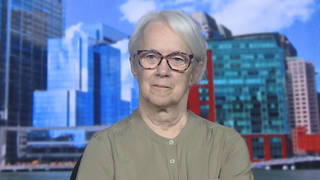
Topics
Russian Defense Minister Sergei Ivanov said yesterday that Russia and the United States have come closer to ending their dispute over Washington’s missile defense plans, raising expectations for a possible agreement when Vladimir Putin visits Bush in Texas next week. In previous remarks on the subject, both Putin and Ivanov have insisted the ABM treaty is a “cornerstone” of strategic stability and should remain in place.
Yesterday Russia and the government of Tajikistan also announced they had agreed to let the US use three formerSoviet airfields to attack Afghanistan, in return for tens of millions of dollars in U.S. aid. The announcementfollowed a visit to both countries by War Secretary Donald Rumsfeld.
Rumfeld’s visit was preceded by ExxonMobil’s announcement that it was going ahead with a $12 billion oil project inthe Russian Far East, which would be the single largest foreign investment in Russia. Sources close to the deal saythat the increase in US-Russian cooperation helped to facilitate ExxonMobil going forward.
Since September 11, the US Russian relationship has gone through a sea change, with Prime Minister Putin appearingto accommodate the Bush Administration at every turn as Bush seeks Russian cooperation in the so-called war onterrorism.
The question is what Russia is getting in return, and what the increased US military presence in the region means forRussian officials who still intent on preserving their influence in central Asia.Guest:
- Robert Cutler, Institute of European and Russian Studies at Carleton University in Montreal.











Media Options